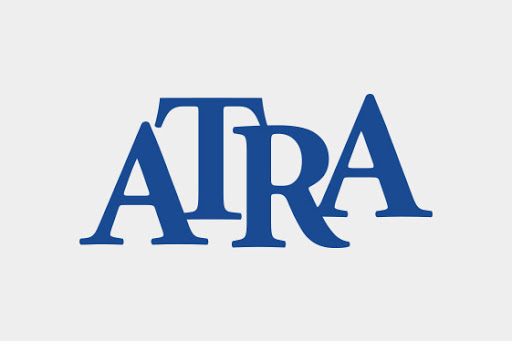‘Highly Unusual’ Rehearing of Louisiana Case Raises Judicial Independence Concerns
Louisiana Supreme Court Waffles Under Political Pressure, ATRA Brief Urges Court to Stand Strong

Proposed restatements from the ALI are becoming increasingly controversial, ATRA President Tiger Joyce says.
The American Law Institute (ALI) Council recently announced it will reconvene on March 2 to consider, and potentially vote to approve, a proposed medical monitoring provision in a restatement, which the American Tort Reform Association says could considerably expand damage recoveries.
“ALI’s mission appears to have shifted over the past decade from that of a scholarly institution that was safely above the fray in broader policy disputes, to that of an advocacy group proposing novel expansions in liability law,” ATRA President Tiger Joyce said. “It is disappointing to see the ALI ignore concerns raised by various legal groups and double down by proposing an even more expansive medical monitoring rule.”
The proposed medical monitoring provision of the ALI’s Restatement of Torts, Third: Concluding Provisions would authorize recovery of so-called medical monitoring costs in the absence of any bodily harm (i.e. costs to detect the possible onset of a future injury).
“The ALI’s approach to medical monitoring is controversial because the existence of an injury has traditionally been a fundamental tort law requirement,” Joyce said. “The ALI has never before adopted a restatement rule endorsing a tort recovery for unimpaired claimants.”
Case law addressing medical monitoring for the unimpaired is divided, with no clear trend toward either adoption or rejection. A minority of states, roughly one-third, authorize (or appear to authorize) recovery. At least as many states reject recovery of medical monitoring. The remaining states have either unclear or no case law on point.
If the provision is approved by the Council, it will presumably be considered by the ALI membership along with other sections of the Concluding Provisions Restatement at the ALI’s Annual Meeting in May.
“Proposed restatements from the ALI are becoming increasingly controversial,” Joyce said. “These restatements have appeared to depart from the traditional objective of an ALI Restatement, which is to ‘restate’ the consensus on legal rules based on existing law developed by judges, usually over the course of many years.”
ALI’s current version of the medical monitoring rule endorses an even broader scope of recovery than previous draft proposals.
Other areas of concern include another concluding provision which proposes to restate the tort of negligent misrepresentation causing physical harm as well as the proposed restatement of the law of consumer contracts.
Drafts of this concluding provision to restate the tort of negligent misrepresentation causing physical harm has directly endorsed “innovator liability” against branded drug manufacturers where persons who took a competitor’s generic drug product sustained injury.
“Even if this provision were revised to reject innovator liability, it would still be of major concern,” Joyce said. “The proposed approach jettisons traditional duty and reasonable reliance requirements such that any person or entity’s communication of misinformation to anyone could be grounds for a lawsuit.”
The ALI Council has not considered this proposed rule yet, and it is unclear if it will do so at the upcoming March 2 meeting. The Reporters for this Restatement have indicated they are still working on this provision in light of the case law provided by ALI members demonstrating that courts have overwhelmingly rejected innovator liability.
The Restatement of the Law, Consumer Contracts is a first-of-its-kind project for the ALI. It proposes to restate the law of so-called “consumer contracts” where it does not appear that any court has articulated a separate set of consumer contract rules that operate differently from the general law of contracts.
Instead of restating an established area of the common law, this Restatement proposes rules to advance a particular policy agenda by subjecting agreements between businesses and consumers to what would be unprecedented judicial scrutiny.
“The ALI’s proposed restatement of consumer contracts cobbles together disparate legal principles and sources of law, such as consumer protection statutes and regulations, to construct novel common law rules for courts to adopt,” Joyce said. “In doing so, the project appears misguided, as the basic purpose of a restatement is to present ‘clear formulations of common law…as it presently stands or might appropriately be stated by a court.’”
ATRA, along with a broad coalition of other groups and general counsel of major corporations, submitted a letter urging the Council not to approve this project at its upcoming Annual Meeting in May.
Louisiana Supreme Court Waffles Under Political Pressure, ATRA Brief Urges Court to Stand Strong
Left unchecked, these jurisdictions will continue dragging down economic growth and undermining justice through rampant lawsuit abuse.
Claimants Given Opportunity to Vote on Plan; Judge to Reconsider Scientific Validity of Plaintiffs’ Experts
Legitimate consumer protection demands sound science and impartial analysis — not distorted data designed to manufacture lawsuits.
Law Firms Spent $168M+ on 2.2M Ads in Georgia
ATRA’s Latest Studies Reveal Financial Influence and Lack of Transparency in Pennsylvania’s Campaign Finance Systems